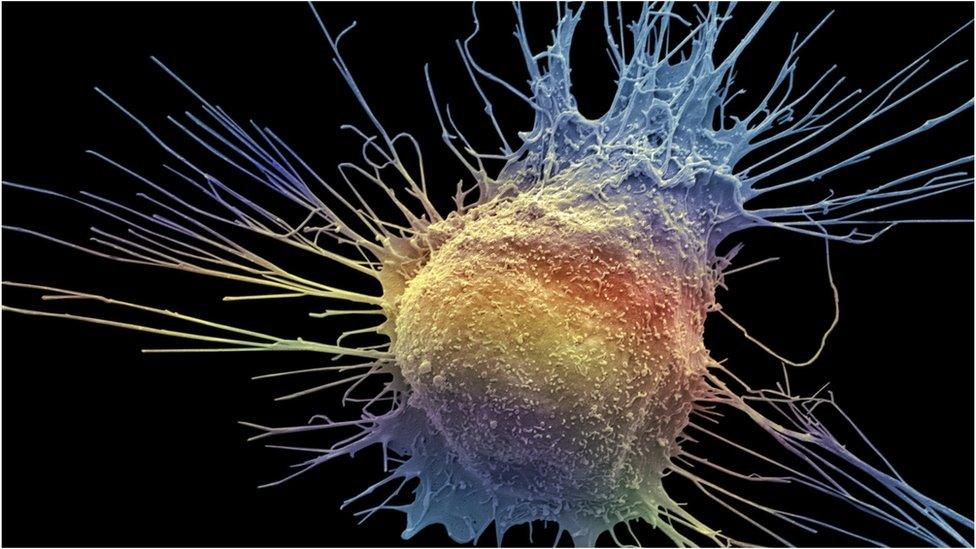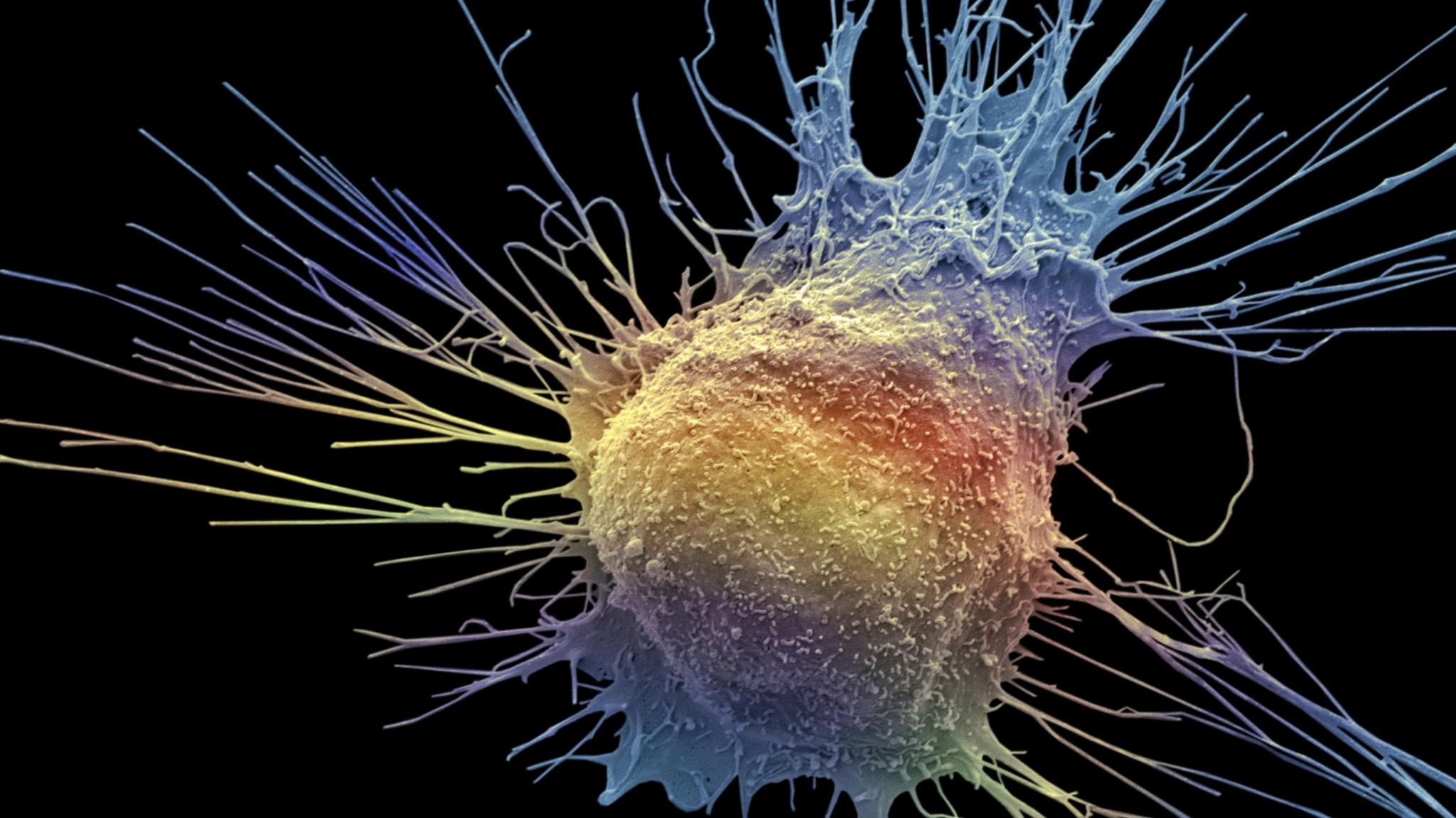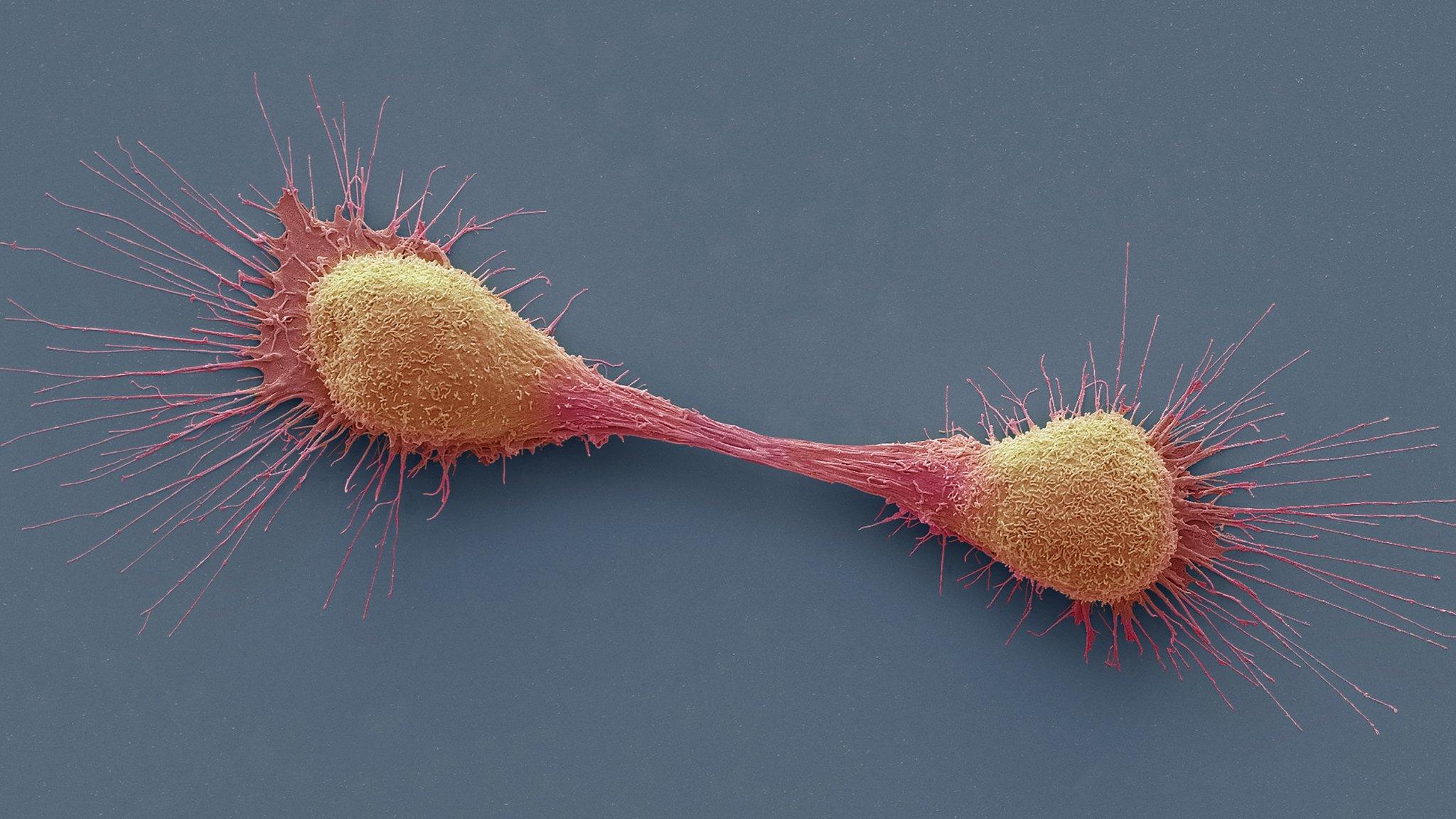Ulster scientists claim prostate cancer 'discovery'
- Published

Only 22% of men diagnosed with advanced stage four prostate cancer survive for five years
Ulster University (UU) scientists have declared a "significant" discovery in the treatment of prostate cancer.
It is hoped the finding could help stop the spread of the disease and prevent patient relapses.
Only 22% of men diagnosed with advanced stage four prostate cancer survive for five years.
But researchers found that combining an existing hormone therapy - androgen deprivation - with new drug OCT1002 can improve treatment effectiveness.
This works by targeting more resistant cancer cells and preventing malignancy and spread.
Ulster University academic Dr Declan McKenna, who led the study, described the find as "hugely significant".
Clinical trials
"Hormone therapy is an effective treatment but its success with more resistant cancer cells is limited," said Dr McKenna.

Ulster University's Dr Declan McKenna said the next step would be clinical trials to test the combined therapy
"By combining hormone therapy with this new drug, we have for the first time discovered a way to destroy these resistant cells that may otherwise lead to relapse or the spread of cancer cells."
The research builds upon the UU discovery, earlier this year, that low oxygen levels in prostate cancer tumours are responsible for triggering genetic changes.
Those changes accelerate the growth of new cancer cells and can cause patients to relapse within two years of starting the traditional hormone therapy treatment.
"Our next step is to consider a move to clinical trials, so we can focus on testing this combined therapy and ultimately develop tailored treatments for individual prostate cancer patients globally," said Dr McKenna.
The three-year study was supported by Prostate Cancer UK through a £213,000 grant from the Movember Foundation.
The latest results have been published by the journal Clinical Cancer Research.
- Published15 September 2016

- Published2 May 2016
